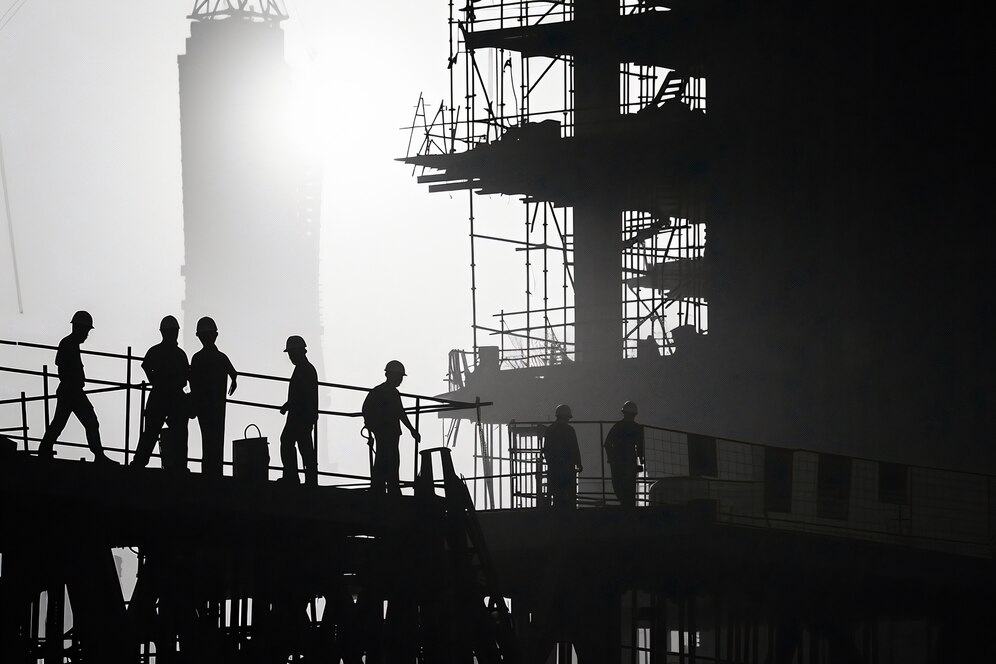
Introduction
Effective management of the construction workforce is crucial for finishing projects on time and within budget. It’s estimated that nearly two-thirds of construction projects fail to reach completion within the estimated budget, with labor inefficiencies playing a significant role. With labor costs accounting for nearly 40% of the total project cost, construction workforce management should be a priority for project managers to ensure successful and profitable outcomes. This article explores key techniques for effective management of your construction workforce.
Importance of Construction Workforce Management
The construction workforce is the most valuable asset of any construction company, playing a crucial role throughout the execution phase of a project. Successful workforce management not only increases productivity but also enhances worker satisfaction, making them feel valued and content. Key elements of effective management include good collaboration and communication, proper motivation, timely conflict resolution, and ensuring the health and safety of workers. Additionally, leveraging technological tools can facilitate better workforce management, saving both time and costs.
Techniques for Effective Construction Workforce Management
1. Collaboration and Communication
Collaboration and good communication among various specialized sub-contractors significantly impact the efficiency and effectiveness of a project. Maintaining seamless communication between different groups of workers allows for the quick detection and correction of errors, preventing a domino effect and project delays.
2. Workday Optimization
Proper time management is vital for the successful management of the construction workforce. Delays often occur when workers wait long periods before starting their tasks, slowing the project’s pace and increasing costs. A robust time management system can substantially boost worker productivity.
Strategies for Workday Optimization:
- Site Preparation: Ensure the site is ready before workers arrive.
- Timely Material Delivery: Plan and execute material deliveries to prevent delays.
- Workflow Organization: Establish and stick to timelines, organize workflow, and procure materials in advance.
- Labor Accommodation: Providing accommodation close to the construction site improves labor productivity, enabling workers to start on time and work extra hours if needed.
3. Application of Technological Tools
Construction projects require extensive administrative work, including daily reports, estimates, billing, and code inspection documents. Utilizing proper computer programs and digitalizing these documents can save time and energy, reduce errors, and decrease costs.
4. Data Collection and Analysis
Collecting and analyzing construction workforce data helps project managers identify areas for improvement and increase productivity. Performance metrics can guide decisions and strategies to optimize workforce management.
5. Motivation of Workers
Motivated workers are more productive and committed. Understanding individual worker’s goals, needs, and backgrounds helps project managers tailor motivational strategies effectively. Financial incentives, recognition, and opportunities for personal growth can significantly boost morale and performance.
Ways to Motivate Workers:
- Personal Engagement: Get acquainted with workers to understand their ambitions and motivations.
- Clear Communication: Provide clear expectations and step-by-step guidance.
- Recognition and Rewards: Regularly recognize and reward efforts to encourage high performance.
- Health and Development: Ensure workers feel their health, personal goals, and development are valued.
6. Managing On-site Disputes
Properly managing disputes on the construction site is crucial to maintaining motivation and communication. Project managers should be approachable, actively listen to worker concerns, and have the ability to diffuse stressful situations. A project manager should act as a leader, training staff and equipping them with new knowledge and skills.
7. Recruiting Qualified Workers
Hiring workers who can perform tasks to the required standards is essential. Qualified workers save time and money, ensuring the construction work meets quality and efficiency expectations.
8. Addressing Underperformance Issues
Addressing underperformance promptly involves identifying and eliminating the root causes, such as stress, overwork, or lack of resources. Effective problem-solving can mitigate issues and restore productivity.
9. Ensuring Worker Health
Reasonable working hours are essential for maintaining worker health. Overworked laborers experience reduced cognitive abilities and production rates. Scheduling should consider adequate rest to prevent fatigue and ensure sustained performance.
10. Proper Manpower Management
Integrating new workers into a project requires familiarizing them with plans and timelines. New members can initially disrupt teamwork, so proper introduction and integration into the team are crucial. Over-staffing should be avoided as it can cause disruptions, demotivation, and increased absenteeism.
11. Improving Workplace Safety
Construction sites involve significant hazards, including heavy machinery, dangerous heights, and hazardous materials. Ensuring worker safety is a top priority, and compliance with occupational safety guidelines is essential. A safe workplace encourages worker retention and productivity.
Safety Strategies:
- Establish Safety Plans: Develop and implement comprehensive safety plans.
- Worker Cooperation: Encourage workers to practice safety measures.
- COVID-19 Guidelines: Adhere to guidelines to limit the spread of COVID-19 on-site.
12. Handling Logistics Efficiently
Efficient logistics are critical for maintaining workflow on construction sites. Timely delivery and handling of materials prevent delays and frustration among workers. Project managers must ensure the right quantity of materials is delivered at the right time to keep the project on track.
Conclusion
Effective management of the construction workforce is essential for the success of construction projects. By focusing on collaboration and communication, optimizing workdays, utilizing technological tools, collecting and analyzing data, motivating workers, managing disputes, recruiting qualified workers, addressing underperformance, ensuring worker health, managing manpower, improving workplace safety, and handling logistics efficiently, project managers can enhance productivity, meet deadlines, and stay within budget. A well-managed construction workforce is key to achieving successful and profitable construction projects.